NTRK Test – NTRK Fusions treatment
Why a NTRK test is critical? The FDA recently approved Vitrakvi (Larotrectinib) for the treatment of cancers with a genomic abnormality in the TRK pathway regardless of tumor type. This establishes a new trend in precision medicine, in which targeting a genomic abnormality is becoming the standard of care in dictating treatment strategy. Pediatric and adult patients with NTRK positive cancers showed 75% overall response when treated with Vitrakvi (Larotrectinib) if their tumors carry a fusion in one of the NTRK genes (NTRK1, NTRK2, or NTRK3).
Detecting NTRK abnormalities:
Only well-designed specific and comprehensive NTRK testing can uncover fusion in the three NTRK genes (NTRK1, NTRK2, and NTRK3). Well-designed targeted RNA next-generation sequencing (NGS) is considered the most reliable method to test for abnormalities involving NTRK1, NTRK2, and NTRK3 genes, including fusion, point mutation, and splicing.
Unlike FISH and immunohistochemistry, only NGS testing can provide reliable information on not only a fusion but also point mutations and alternative splicing.
Genomic Testing Cooperative (GTC) offers the most convenient and comprehensive NGS testing for fusions and mutations involving the three NTRK genes (NTRK1, NTRK2, and NTRK3) at affordable pricing.
Order today: Solid Tumor Fusion/ Expression profile specifically testing for fusions and mutations in NTRK1, NTRK2, and NTRK3 as well as fusion in 57 additional genes at an affordable price or as a combination with complete genomic profiling of 434 genes for further discounted price. Results provided in 7 days.
NTRK fusions are, in general, rare, but detected at
1) High frequency (>90%) in: Secretory breast carcinoma, mammary analogue secretory carcinoma, cellular or mixed congenital mesoblastic nephroma, and Infantile fibrosarcoma.
2) Lower frequency (around 5%) in: Papillary thyroid cancers, Spitzoid neoplasms, gastrointestinal stromal tumors (GIST) lacking canonical KIT, PDGFRA, and some pediatric glioma
3) Very low frequency (<1%) in: lung, breast, pancreatic adenocarcinomas, head and neck tumors, bile duct tumors, colorectal cancer, renal cell carcinomas, melanomas, brain tumors, various sarcomas, acute lymphoblastic leukemia (ALL), and acute myeloid leukemia (AML).
In addition to fusions, other abnormalities, such as point mutations and alternative splicing in NTRK genes can be seen in some cancers. However, the exact role of these abnormalities in oncogenesis is not well-defined. Mutations in NTRK genes in cancers being treated with NTRK inhibitors (Larotrectinib)may lead to resistance.
Order a test now
